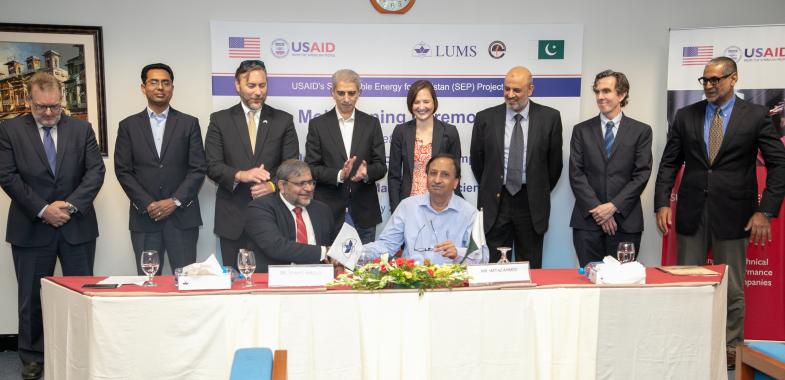
LUMS and the Power Information Technology Company (PITC) came together to sign a Memorandum of Understanding (MoU) at the University, which marked the start of a partnership for research and development on smart grid technologies designed to improve energy consumption.
Utilising the Smart Grid IT Laboratory established at PITC with US government support, LUMS and PITC will test smart grid technologies and showcase their benefits to distribution and transmission companies. This will provide opportunities for researchers at the University to exchange information on new developments with the Pakistani government.
US Consul General Colleen Crenwelge present at the MoU signing ceremony said, “Advanced technologies are making electricity more affordable, reliable, and sustainable.” She further added, “We are proud to work with Pakistan as it builds technological capacity and improves the energy sector, and we hope to see growing private sector participation and investment in this endeavour.”
“Partnering with LUMS will stimulate research and development collaboration between the Pakistani government and local universities while enhancing local learning and technology transfer,” said Mr. Waseem Mukhtar, Managing Director, Potomac Electric Power Company (PEPCO) and Chairman of the Board of Directors at PITC.
Talking about the impact of the MoU, Dr. Shahid Masud, Dean of the Syed Babar Ali School of Science and Engineering at LUMS said, “The Smart Grid IT Laboratory will help us achieve the University’s mission of effectively addressing power sector needs and contributing directly to Pakistan’s economic development.”
The signing ceremony was organised by the Sustainable Energy for Pakistan (SEP) Project, a four-year United States Agency for International Development (USAID) technical assistance initiative to support the Pakistani government’s efforts to deliver financially sustainable energy services. USAID provides technical and financial assistance to Pakistan’s 10 government-owned electricity distribution companies to help them reduce losses, streamline business processes, and improve financial viability.









